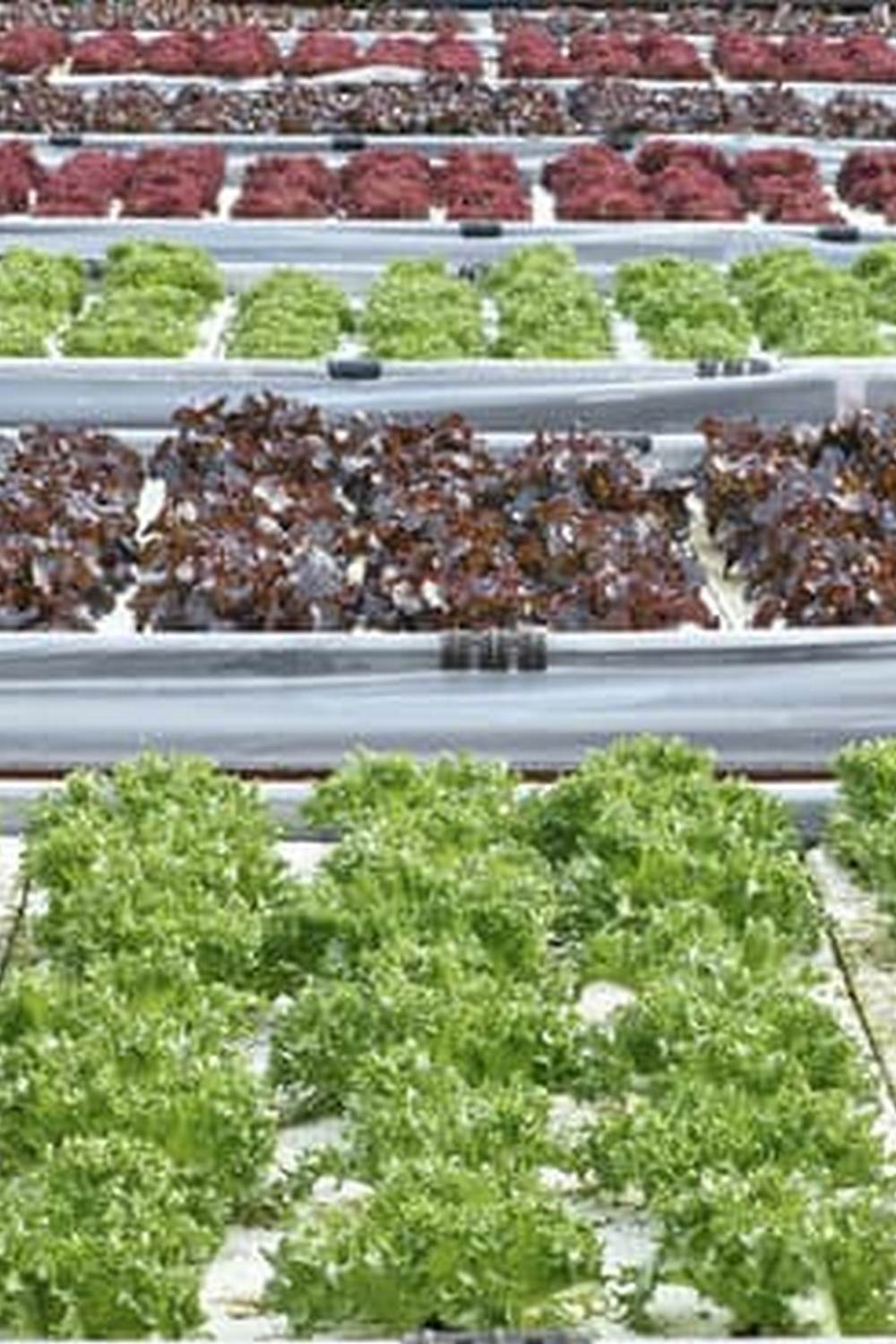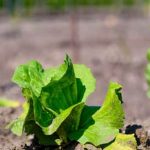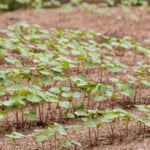Diatomaceous earth, often referred to as DE, is a natural product that has gained popularity in vegetable gardens for its diverse range of benefits. From pest control to soil improvement, diatomaceous earth can be a valuable addition to your gardening toolkit. This article will delve into the use of diatomaceous earth in vegetable gardens, exploring its effectiveness and safety.
Derived from fossilized aquatic organisms known as diatoms, diatomaceous earth is an abrasive powder that works by dehydrating insects and pests that come into contact with it. While commonly used for pest control, DE also serves as a soil amendment, aiding in water retention and nutrient absorption for healthier plant growth. Its versatility makes it a practical choice for gardeners looking to enhance their vegetable gardens naturally.
When using diatomaceous earth in vegetable gardens, it is essential to distinguish between food-grade DE and pool-grade DE. Food-grade DE is safe for use around plants, pets, and humans, while pool-grade DE contains additional chemicals that make it harmful if ingested.
By understanding the differences between these two types of DE, gardeners can ensure the safety and effectiveness of their pest management efforts. Stay tuned to learn more about the benefits of incorporating diatomaceous earth into your vegetable garden routine.
Benefits of Using Diatomaceous Earth in Vegetable Gardens
Controlling Garden Pests
One of the key benefits of using diatomaceous earth in vegetable gardens is its ability to effectively control garden pests. DE works by scratching the exoskeletons of insects, causing them to dry out and eventually die.
This natural method of pest control is particularly useful for organic gardening, as it does not pose any harm to beneficial insects or other organisms in the garden. Common pests that can be controlled with diatomaceous earth include ants, beetles, slugs, and various types of caterpillars.
Improving Soil Quality
In addition to its pest control properties, diatomaceous earth also offers benefits for soil health in vegetable gardens. DE has a high silica content, which can help improve soil structure and promote better drainage. It can also help increase the retention of water and nutrients in the soil, leading to healthier plants with stronger root systems. By incorporating diatomaceous earth into your gardening routine, you can enhance the overall quality of your soil and support optimal plant growth.
Non-Toxic Alternative
Another advantage of using diatomaceous earth in vegetable gardens is that it is a non-toxic alternative to chemical pesticides. Many conventional pesticides contain harmful chemicals that can be detrimental to human health and the environment. DE, on the other hand, is a natural product that is safe for use around people, pets, and wildlife. By choosing diatomaceous earth for pest control in your vegetable garden, you can effectively manage garden pests without having to resort to toxic chemicals.
Types of Diatomaceous Earth
When it comes to using diatomaceous earth in vegetable gardens, one of the most important considerations is the type of DE to use. There are two main categories: food-grade and pool-grade. Understanding the difference between these types is crucial for safe and effective use in your garden.
Food-grade diatomaceous earth is specifically processed to be safe for consumption by humans and animals. It is generally considered safe for use in gardens as well. This type of DE is commonly used for pest control, as well as for improving soil health and reducing fungus gnats. On the other hand, pool-grade diatomaceous earth is typically used in pool filtration systems and may contain additives or chemicals that make it unsafe for use around plants or vegetation.
To ensure the safety of your vegetable garden, it is recommended to always choose food-grade diatomaceous earth for any applications involving plant life. This type of DE has been purified to remove impurities and contaminants, making it a safer option for your garden. Here are some key points to consider when deciding between food-grade and pool-grade diatomaceous earth:
- Food-grade DE is certified safe for use in organic farming and gardening.
- Pool-grade DE may contain additional chemicals or additives that could harm plants or beneficial insects.
- Choose a reputable supplier that clearly labels their product as food-grade to avoid any potential risks when using diatomaceous earth in your vegetable garden.
By selecting the right type of diatomaceous earth for your vegetable garden, you can harness its benefits without risking any harm to your plants or the environment. Remember to always follow application guidelines and safety precautions to maximize the effectiveness of DE while maintaining a healthy garden ecosystem.
How to Apply Diatomaceous Earth in Vegetable Gardens
Diatomaceous earth (DE) is a popular natural product used in vegetable gardens for its ability to control pests and improve soil health. But applying DE effectively is crucial for maximizing its benefits. Here is a step-by-step guide on how to apply diatomaceous earth in vegetable gardens:
1. Prepare the DE: Choose food-grade DE for use in vegetable gardens, as it is safe for plants, animals, and humans. Food-grade DE has finer particles that are effective against pests without harming beneficial insects. Make sure to wear protective gear like gloves and a mask when handling DE to avoid irritation.
2. Identify Areas of Infestation: Before applying DE, identify areas of your vegetable garden that are most affected by pests. Look for signs of insect activity such as holes in leaves or chewed fruits and vegetables. This will help you target the application more effectively.
3. Apply the DE: Sprinkle a thin layer of diatomaceous earth on the soil around your plants where pests are present. You can also dust the leaves of plants lightly with DE, focusing on the undersides where pests tend to hide. Reapply after rain or irrigation since moisture reduces DE’s effectiveness.
4. Monitor Effectiveness: Regularly check your plants for any signs of pest activity after applying DE. Keep an eye out for changes in pest populations and plant health to determine if additional applications are needed.
By following these steps, you can effectively apply diatomaceous earth in your vegetable garden, promoting healthy plant growth while controlling common garden pests organically.
| Benefits | Details |
|---|---|
| Natural Pest Control | DE helps manage garden pests without the use of harmful chemicals. |
| Soil Improvement | DE can improve soil drainage and nutrient retention. |
| Safe for Use | Food-grade DE is safe for plants, animals, and humans in the garden. |
Common Garden Pests Controlled by Diatomaceous Earth
Diatomaceous earth is a versatile and effective tool for controlling a wide range of garden pests in vegetable gardens. One of the most common uses of diatomaceous earth in vegetable gardens is for managing insects such as ants, aphids, beetles, caterpillars, slugs, and snails. When applied properly, diatomaceous earth can help to repel and eliminate these pests without the need for harmful chemicals.
In addition to insects, diatomaceous earth can also be used to control other garden pests such as mites, earwigs, and even certain types of fungi. The abrasive nature of diatomaceous earth helps to physically dehydrate and kill these pests when they come into contact with it. This natural approach to pest control is not only effective but also safe for plants, pets, and humans.
By using diatomaceous earth in your vegetable garden, you can create a barrier that deters pests from feeding on your plants without causing harm to the environment or beneficial insects. This organic pest control method can be particularly useful for gardeners looking to minimize the use of synthetic pesticides and promote a healthy ecosystem in their gardens.
Incorporating diatomaceous earth into your garden care routine can help you achieve pest-free vegetables while maintaining a sustainable and eco-friendly approach to gardening.
Precautions and Safety Measures When Using Diatomaceous Earth in Vegetable Gardens
In conclusion, incorporating diatomaceous earth into vegetable gardens can be a beneficial and effective way to manage pests and improve soil quality. By understanding the nature of diatomaceous earth and its various uses in gardening, individuals can take advantage of its natural properties to maintain a thriving garden ecosystem.
One key aspect to consider when using diatomaceous earth in vegetable gardens is the importance of choosing the correct type, such as food-grade versus pool-grade, to ensure safe and effective application. Additionally, following a systematic approach to applying diatomaceous earth can help maximize its benefits in pest control and overall soil health.
It is essential to keep in mind the precautions and safety measures associated with using diatomaceous earth in vegetable gardens, especially when it comes to protecting plants, pets, and humans from potential risks. By adhering to guidelines for proper application and handling of diatomaceous earth, gardeners can harness its power while maintaining a safe environment for all living organisms involved.
Overall, with careful consideration and responsible use, diatomaceous earth can be a valuable tool for promoting healthy growth and productivity in vegetable gardens.
Frequently Asked Questions
Is Diatomaceous Earth Safe in Vegetable Garden?
Diatomaceous Earth is generally considered safe to use in a vegetable garden, as it is a natural product that can help control pests like slugs, beetles, and other insects. However, it is important to use food-grade diatomaceous earth and follow application instructions to avoid harming beneficial insects or plants.
Can I Put Diatomaceous Earth on My Tomato Plants?
Yes, you can put Diatomaceous Earth on your tomato plants as a natural way to control pests like aphids, whiteflies, and hornworms. It is important to apply the powder directly on the leaves and stems of the plants while avoiding any blooms to prevent interference with pollination.
Can You Put Diatomaceous Earth on Plant Soil?
You can definitely put Diatomaceous Earth on plant soil as a method of pest control. When sprinkled on the soil surface, it can help deter pests like ants, snails, and slugs by creating an abrasive barrier that damages their bodies. Just be cautious not to overapply the powder to avoid impacting the health of your plants’ roots or soil organisms.

If you’re looking to get into vegetable gardening, or are just looking for some tips on how to make your current garden better, then you’ve come to the right place! My name is Ethel and I have been gardening for years. In this blog, I’m going to share with you some of my best tips on how to create a successful vegetable garden.





